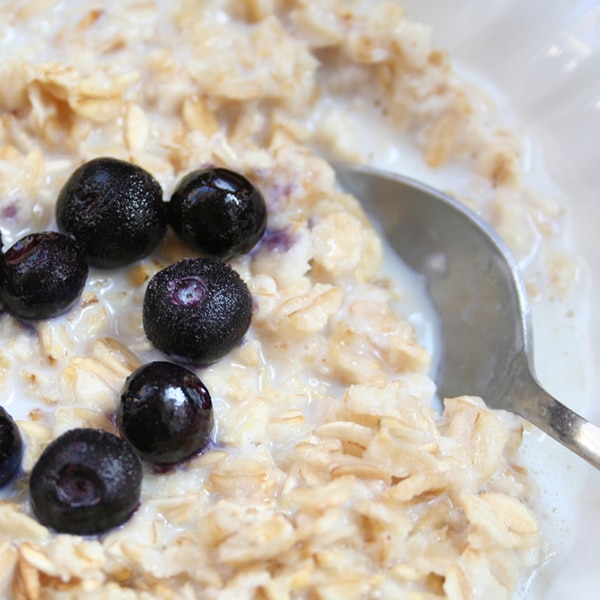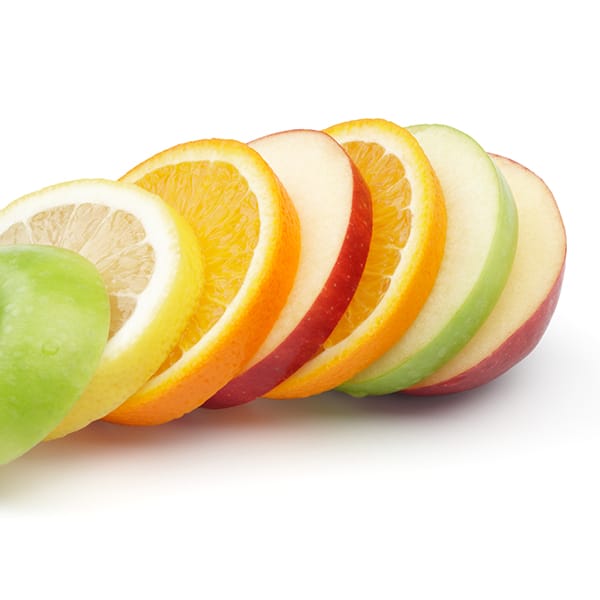Nutrition information is everywhere – the internet, radio, television, books, newspapers, and every magazine in the checkout line at the grocery store. Family, friends, co-workers, your next-door neighbor, even your hairdresser, all have nutrition advice to share. Every day, we are bombarded with information about “healthy eating” or the latest eating trends… who wouldn’t feel overwhelmed?
When it comes to nutrition, it can be hard to determine myth from fact, so let’s debunk a few common nutrition myths and learn how to identify reliable sources in the future.

Myth #1: Carbs are bad for you.
Are carbs really the enemy? Carbs, short for carbohydrates, are the body’s preferred source of energy and are an essential nutrient for our bodies to function (despite what the keto diet says!). In fact, our bodies need a minimum of 130 grams of carbs per day for vital organ function (1). Carbs are in sweets such as cookies and pastries, but carbs are also found in vegetables, fruits, beans and legumes, nuts and seeds, yogurt, and whole grain products – all of which are packed with vitamins and minerals. Carbs are nutrients, not the enemy.

Myth #2: Taking a high dose of vitamin C will prevent you from getting the common cold.
While it is true that vitamin C plays a role in supporting a healthy immune system, evidence suggests that a high dose of vitamin C does not reduce the incidence of the common cold in the general population and does not appear to be helpful after the onset of cold symptoms (2). In addition, vitamin C is a water-soluble vitamin, meaning our bodies do not store it, and excess amounts of the vitamin will leave the body through urine. Many vitamin C supplements are more than ten times the recommended amount – which means most of those supplements are going right down the toilet (literally!). Most Americans get the recommended amount of vitamin C just from their diet (75-90 mg for adults). Consult your healthcare provider before taking any kind of vitamin or supplement.

Myth #3: You need to do a cleanse or detox to eliminate toxins in your body.
It seems everyone is talking about three-day juice cleanses and detox teas. The fact is, we do not need to cleanse our bodies with these, often overpriced products – especially since our bodies are already equipped with highly efficient self-cleaning mechanisms. Our lungs, skin, liver, kidneys, and gastrointestinal tract are constantly cleaning our bodies through breathing, sweating, urinating, and regular bowel movements (3). If there is something more toxic than our organs can handle (i.e., drinking too much alcohol), we either get sick or we are poisoned (at which point, you need to go to the ER, not a juice cleanse).

Myth #4: Low-fat or fat-free products are healthier choices.
Surprisingly, processed foods labeled as lite, fat-free, reduced fat, or low-fat, typically contain higher amounts of sugar and/or sodium than regular versions of the same foods. If the fat is removed, it is supplemented with sugar or salt to make up for the loss of flavor (4). In addition, fats provide satiety, meaning they help us to feel full and satisfied after eating. Instead of being fooled by low-fat products, try looking for foods that are high in healthy fats, such as avocados, nuts and seeds, nut butters, and fish.
How to identify reliable nutrition information from misinformation:
- Ask yourself, is this nutrition advice supported by science? Nutrition information should be based on significant scientific research that was conducted in peer-reviewed journals.
- Is it promising immediate, effortless, or guaranteed results? If it is too-good-to-be-true, it probably is.
- Is the product using guilt or fear tactics, such as labeling foods as “guilt-free?” Newsflash, guilt is not an ingredient in any food, and it never will be.
- Has the product been approved by the Food and Drug Administration (FDA)? For example, the FDA does not regulate dietary supplements or protein powders.
- Am I being advised to eliminate major food groups? Every food group contains certain nutrients that our bodies need to function properly.
A Registered Dietitian Nutritionist (RDN) is a credentialed health professional and nutrition expert that is qualified to give dietary advice.
Be patient, be gentle, and be kind to yourself.
Author: Madi Zaidel, MS, CHES
References:
- Slavin J, Carlson J. Carbohydrates. Advances in Nutrition. 2014;5(6):760-761. doi:10.3945/an.114.006163
- National Institute of Health. Vitamin C. Updated March 26, 2021. Accessed February 22, 2022. https://ods.od.nih.gov/factsheets/VitaminC-HealthProfessional/
- Klein AV, Kiat H. Detox diets for toxin elimination and weight management: a critical review of the evidence. J Hum Nutr Diet. 2015 Dec;28(6):675-86. doi: 10.1111/jhn.12286. Epub 2014 Dec 18. PMID: 25522674.
- Nguyen PK, Lin S, Heidenreich P. A systematic comparison of sugar content in low-fat vs regular versions of food. Nutrition & Diabetes. 2016;6(1):e193. doi:10.1038/nutd.2015.43
Share this page
